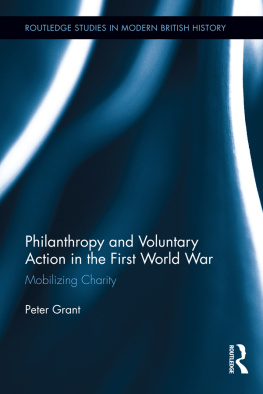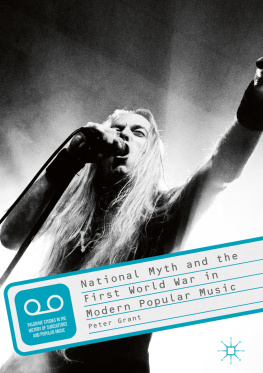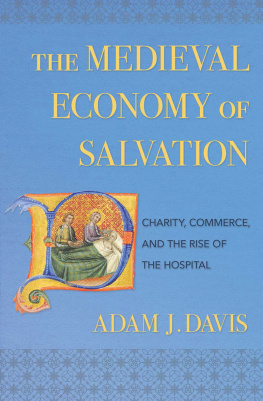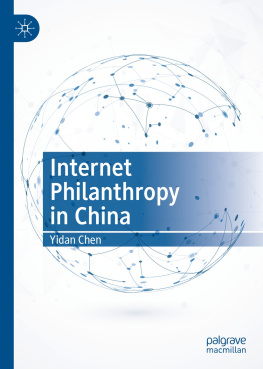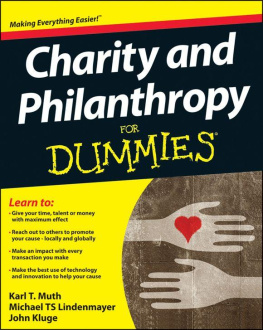Peter Grant - Philanthropy and Voluntary Action in the First World War: Mobilizing Charity
Here you can read online Peter Grant - Philanthropy and Voluntary Action in the First World War: Mobilizing Charity full text of the book (entire story) in english for free. Download pdf and epub, get meaning, cover and reviews about this ebook. year: 2014, publisher: Routledge, genre: Politics. Description of the work, (preface) as well as reviews are available. Best literature library LitArk.com created for fans of good reading and offers a wide selection of genres:
Romance novel
Science fiction
Adventure
Detective
Science
History
Home and family
Prose
Art
Politics
Computer
Non-fiction
Religion
Business
Children
Humor
Choose a favorite category and find really read worthwhile books. Enjoy immersion in the world of imagination, feel the emotions of the characters or learn something new for yourself, make an fascinating discovery.
- Book:Philanthropy and Voluntary Action in the First World War: Mobilizing Charity
- Author:
- Publisher:Routledge
- Genre:
- Year:2014
- Rating:5 / 5
- Favourites:Add to favourites
- Your mark:
Philanthropy and Voluntary Action in the First World War: Mobilizing Charity: summary, description and annotation
We offer to read an annotation, description, summary or preface (depends on what the author of the book "Philanthropy and Voluntary Action in the First World War: Mobilizing Charity" wrote himself). If you haven't found the necessary information about the book — write in the comments, we will try to find it.
This book challenges scholarship which presents charity and voluntary activity during World War I as marking a downturn from the high point of the late Victorian period. Charitable donations rose to an all-time peak, and the scope and nature of charitable work shifted decisively. Far more working class activists, especially women, became involved, although there were significant differences between the suburban south and industrial north of England and Scotland. The book also corrects the idea that charitably-minded civilians efforts alienated the men at the front, in contrast to the degree of negativity that surrounds much previous work on voluntary action in this period. Far from there being an unbridgeable gap in understanding or empathy between soldiers and civilians, the links were strong, and charitable contributions were enormously important in maintaining troop morale. This bond significantly contributed to the development and maintenance of social capital in Britain, which, in turn, strongly supported the war effort. This work draws on previously unused primary sources, notably those regarding the developing role of the UKs Director General of Voluntary Organizations and the regulatory legislation of the period.
Peter Grant: author's other books
Who wrote Philanthropy and Voluntary Action in the First World War: Mobilizing Charity? Find out the surname, the name of the author of the book and a list of all author's works by series.

